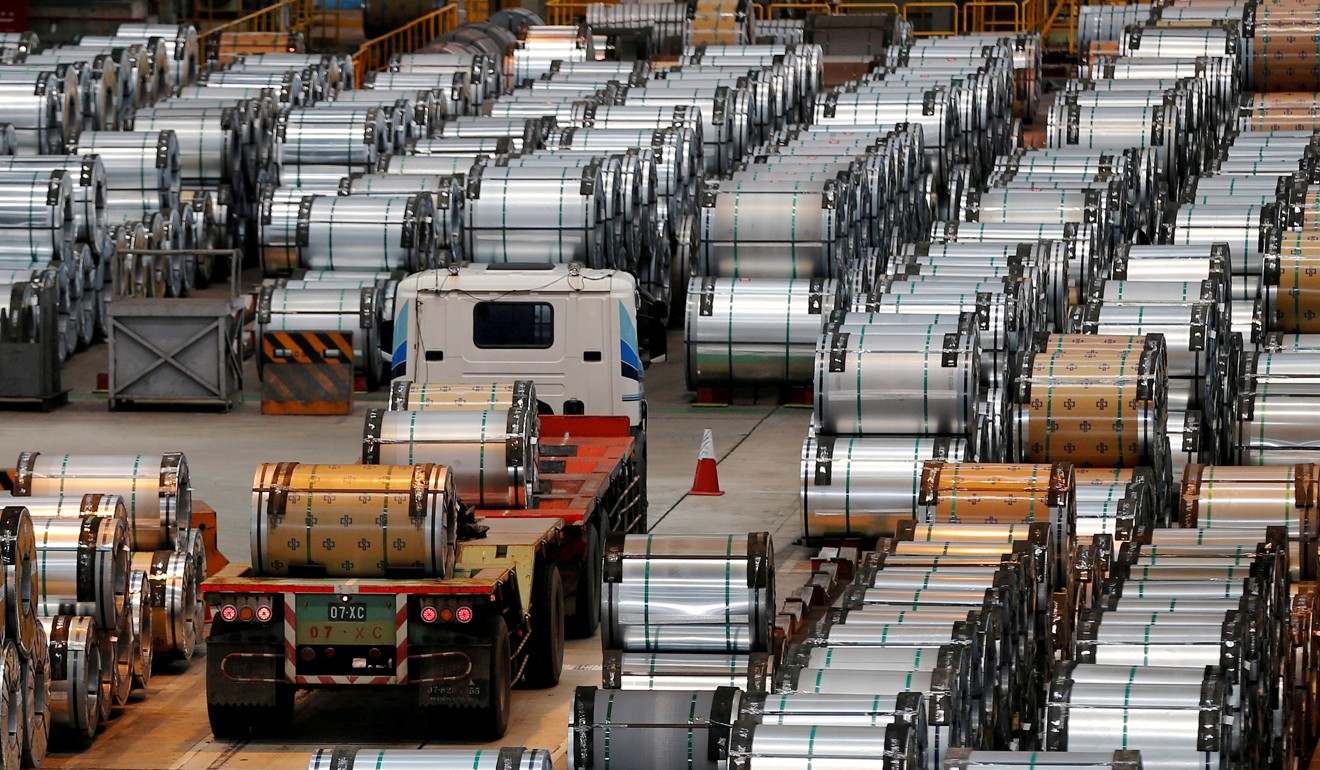US tipped to take direct aim at China as Trump team loses patience on trade
Former White House adviser says the car industry could be among those next in line for US penalties

China can expect more unilateral trade action from the administration of US President Donald Trump as the world’s two biggest economies tussle over trade next year, according to a former White House senior economic adviser.
Daniel Rosen, a White House international economic policy adviser from 2000 to 2001, said Sino-US trade disputes were manageable but the trend was towards more confrontation, with the US expected to wrap up investigations into Chinese aluminium imports and allegations of Chinese theft of intellectual property next year.
Rosen, a partner with US consultancy Rhodium, said the fallout from the investigations could affect other industries, including the car industry.
“The administration has also signalled quite clearly that these cases can be applied to other products as well. I would expect other industries are likely to come forward and explore similar remedies for Chinese trade,” he said on the sidelines of a Hong Kong seminar on China’s economic reform organised by the Trade Development Council on Thursday.
“The automobile sector trade … is one area where trade policies have traditionally been used in the US on economies for not having reciprocal opening in their economies.”
The two investigations into China come as Washington seeks to regain some of its lost ground on trade.
In April, the Trump administration announced it would review whether US imports of cheap Chinese aluminium and stainless steel threatened national security, using Section 232 of the Trade Expansion Act. US producers of the metals have struggled as government-subsidised Chinese output has
pushed worldwide prices to low levels.
Then in August, the White House launched a separate investigation under Section 301 of the Trade Act into Chinese intellectual property practices and their “burden” on US commerce.
Both investigations, using laws written before the establishment of the World Trade Organisation, would allow the administration to levy tariffs on Chinese goods if found to be valid when cases are completed next year.
China has called the investigations “irresponsible” because they fall out of the multilateral trade framework of the WTO, of which China and the US are both members.

But the US has been vocal about what it sees as the failings of the multilateral approach.
At a WTO ministerial meeting in Buenos Aires on Monday, US Trade Representative Robert Lighthizer said the WTO was losing its focus on trade negotiations in favour of litigation, and was going too easy on wealthier developing countries such as China.
Rosen said Trump and his team “do not believe that China is willing to work with a multilateral trade system, and that only unilateral measures will be effective”.
He said the Trump administration’s decision to suspend an annual economic dialogue with Beijing was a significant “symbolic move” suggesting more trade frictions ahead.
The decision was made after US and Chinese representatives failed at a July dialogue and a summit in Beijing last month to make headway on cutting the US trade deficit with China.
“I hope the Chinese side understands how pessimistic many in the Trump administration have become [on trade with China],” he said.